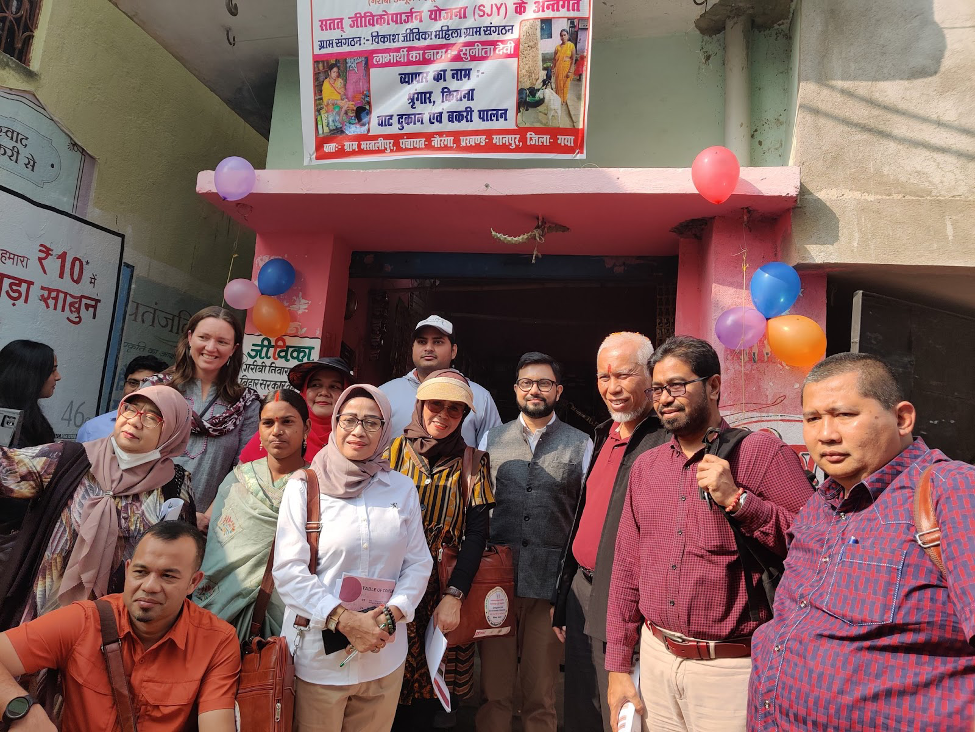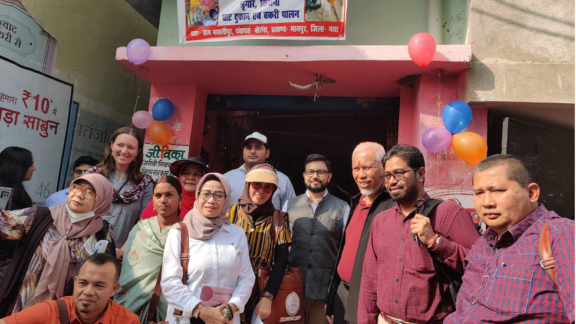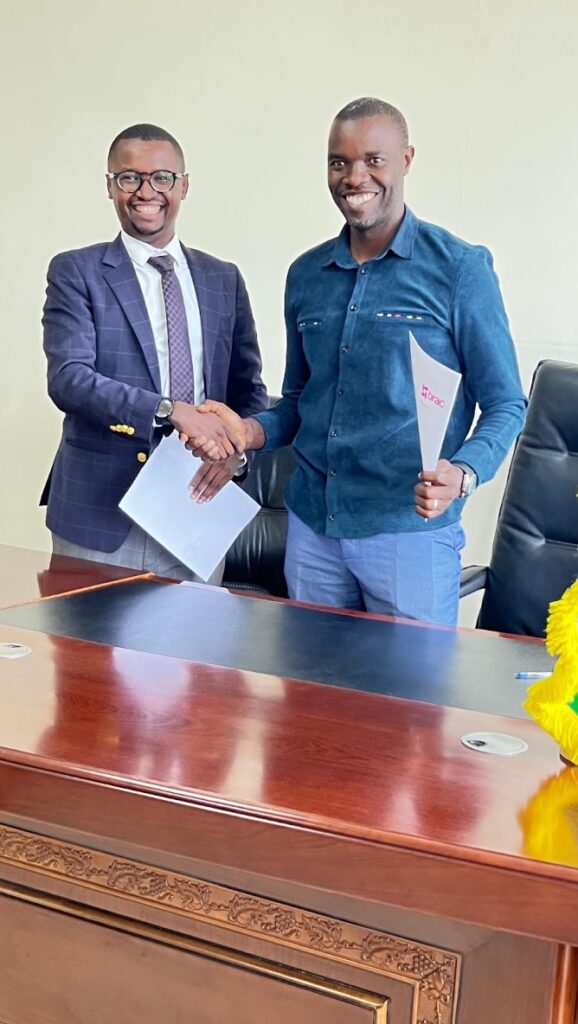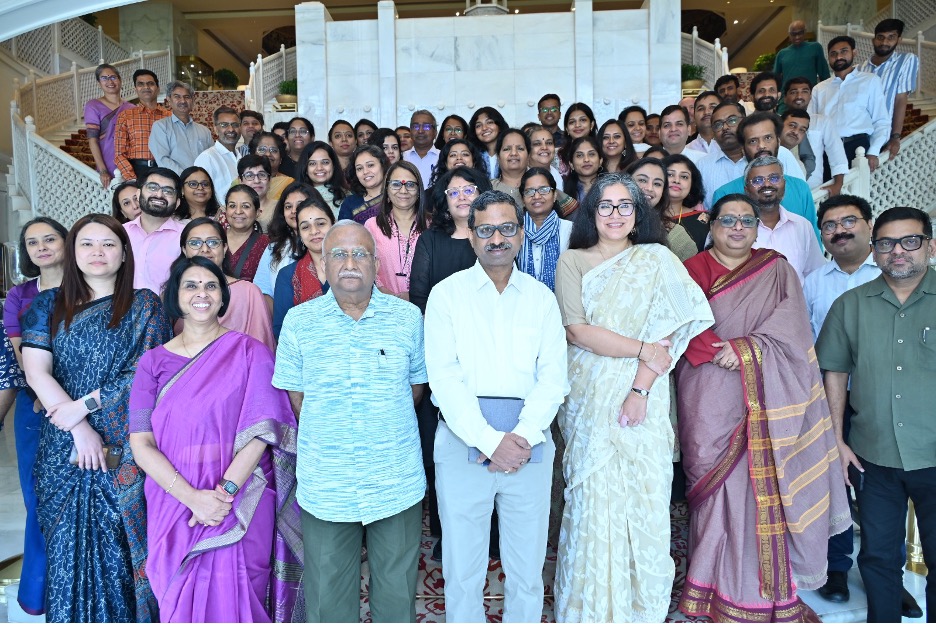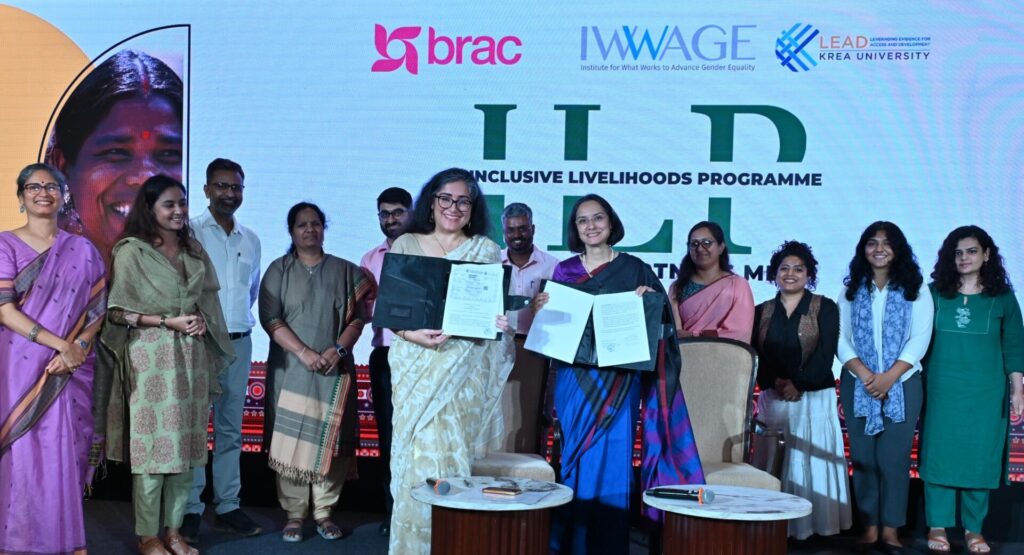By Abdurrahman Syebubakar, Indonesia Country Lead | Shweta Banerjee, India Country Lead | Heidi McAnnally-Linz, Global Lead for Policy & Partnerships, at BRAC Ultra-Poor Graduation Initiative
(Caption for image above): CEO of Bihar Rural Livelihoods Promotion Society (JEEViKA) Rahul Kumar welcomes delegates from Indonesia and BRAC International to Patna to learn about the Satat Jeevikoparjan Yojana livelihoods programme. (PC BRLPS JEEViKA)
The Government of Bihar’s Rural Livelihoods Promotion Society, locally known as JEEViKA, recently hosted a delegation of 11 government officials from Indonesia, marking the launch of the Immersion and Learning Exchange programme (ILE) headquartered in Bihar. The Indonesian government representatives were accompanied by members from BRAC International.
The ILE promotes South-South knowledge and experience exchange between governments, specifically focusing on the evidence-backed, multifaceted Graduation approach, to advance efforts to achieve Sustainable Development Goal 1 (SDG1). Rigorous evaluations prove the Graduation approach sustainably reduces extreme poverty in a wide range of contexts, including West Bengal according to a study by Nobel-prize winning researchers Abhijit Banerjee and Esther Duflo.
Delegates from Indonesia National Development Planning Ministry (Bappenas), Ministry of Home Affairs, West Sumatra Province, West Java Province, West Nusa Tenggara Province, and Yogyakarta Special Region Province visited India to see and exchange information on how JEEViKA is tackling poverty in Bihar through Satat Jeevikoparjan Yojana (SJY). SJY is the world’s largest government-led Graduation programme in rural areas with over 185,000 households in extreme poverty now active participants, according to Rahul Kumar, CEO of JEEViKA. JEEViKA aims to reach 200,000 households via SJY by March 2027.
During the 4-day visit, JEEViKA facilitated various site visits and in-depth discussions for the Indonesian delegates around the design and delivery of SJY. Included among them were conversations with SJY coaches and participants who shared firsthand experiences from the programme and the transformational impact it has had on participating households.

Local governments in Indonesia, including West Sumatra, West Java, West Nusa Tenggara, and Yogyakarta are working toward a more comprehensive approach to combating extreme poverty similar to that of SJY, and this visit was designed to support knowledge sharing that would enhance those efforts. The Indonesian government delegates expressed appreciation toward the SJY model for poverty alleviation and envision implementing a similar model in Indonesia aligning with the contextual needs of the provinces.
In recent joint agreements and official letters of intent, West Sumatra and West Java recognised the need for convergence of existing government efforts and enhanced coordination to integrate essential elements of the Graduation approach to achieve more long-lasting impact. By demonstrating the ways in which SJY leverages existing resources and government services, providing participants with a holistic set of interventions and support, this visit further strengthened delegates’ commitment to comprehensive poverty alleviation and convergence of government programmes.
“It was an honour to participate in the official launch of Bihar Rural Livelihoods Promotion Society’s Immersion and Learning Exchange programme and see firsthand how the Government of Bihar is working to ensure those furthest behind receive the resources and support needed to build sustainable, resilient livelihoods, said Mahyeldi Ansharullah, the Governor of West Sumatra, Indonesia. “There is much we can learn from one another as we work to combat extreme poverty in our respective communities, and by sharing our experiences and learnings with one another, perhaps we can also enhance the efforts of other governments.”
In its report for the Indonesia Ministry of Home Affairs and Foreign Affairs, the delegation of West Sumatra province shared details from the trip along with next steps including hosting delegates from the Government of Bihar to see and learn about their own poverty alleviation efforts in the province.
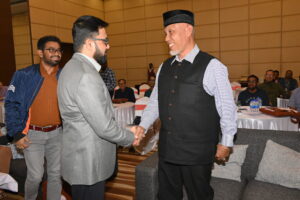
“Through immersion visits and learning exchange via the ILE, JEEViKA aims to make insights around the design, implementation, and evaluation of sustainable livelihood programmes like SJY more accessible to governments throughout the Global South,” said Rahul Kumar, CEO of JEEViKA. “We believe increased South-South knowledge sharing among governments can advance poverty alleviation efforts around the world, enabling us to achieve greater and more sustainable impact and reach millions more people.”
Learning and knowledge exchange have played a critical role in the adaptation, iteration, and expansion of the Graduation approach for more than two decades. It was through critical self-evaluation that BRAC recognised the need to combat extreme poverty with a multifaceted approach in the late 1990s because existing programmes were not adequately reaching those furthest behind. This learning spurred Sir Fazle Hasan Abed, Founder of BRAC, to establish Graduation in 2002 in Bangladesh. Similar to BRAC, JEEVIKA also realised its existing programmes were not effectively addressing the needs of those most marginalised, which resulted in the development of the SJY programme in 2018.
Over the last two decades, continued learning and rigorous evaluation of Graduation resulted in a robust evidence base that has influenced more than 100 organisations in nearly 50 countries to adopt Graduation, according to the World Bank’s Partnership for Economic Inclusion (PEI). It contributed to multiple iterations of Graduation in Bangladesh, informing adjustments that enhanced the overall effectiveness of the programme by ensuring the right resources and skills were provided to participants. Learning and knowledge sharing also informed wider adaptation of the approach for different contexts and circumstances like urban poverty and disability inclusion.
Drawing on more than two decades of designing and delivering Graduation programmes in Africa and Asia, BRAC International is proud to serve as a partner for JEEVIKA’s ILE programme, as well as government partners in Indonesia, supporting further expansion of high quality, government-led Graduation. We believe South-South learning exchange will help galvanise the political will and technical know-how needed to double down on efforts to eradicate extreme poverty, investing existing funding into proven approaches so that together we can together achieve Sustainable Development Goal 1.

